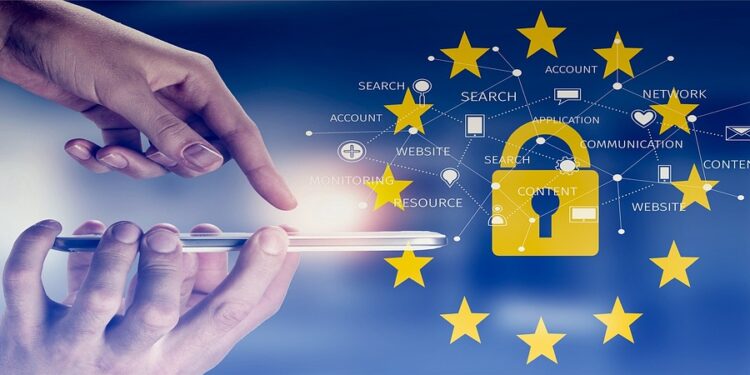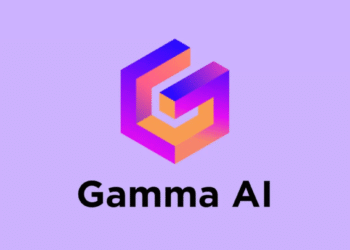The Federal Ministry of Communications and Digital Economy (FMoCDE) of Nigeria has announced the launch of a national policy on blockchain technology. As is expected, many Nigerians focused on the cryptocurrency aspect of blockchain technology. There are other areas, aside from cryptocurrency, where the policy can be beneficial. One such way is by using blockchain for digital identity management.
Blockchain technology offers a safe, decentralized, and tamper-proof solution for storing and verifying identification information. This has the potential to transform digital identity management.
Digital Identity and blockchain technology
What is Digital Identity?
Let’s begin by explaining what “digital identity” means. An individual’s or organization’s digital identity is made up of a variety of pieces of information that identify them online. Personal information like name, birthdate, and address may be included in this data. There are also digital credentials like usernames, passwords, and other authentication methods. Online services, financial transactions, and social interaction all require digital identities.
Present digital identity management is far from flawless in its current condition. Hacks, data breaches, and other security risks can and do affect centralized identification systems. Additionally, they frequently demand that users exchange private information with numerous organizations. This raises concerns about data fragmentation and privacy loss. Users also have to remember numerous identities and passwords, which can be challenging and unsafe.
Blockchain technology can help in this situation. A safe and decentralized computer network can be built using blockchain, a distributed ledger technology.
Blockchain technology
Blockchain can be used to build a secure, decentralized identification system for digital identity management. This option is more resistant to security risks and gives users more control over their personal data.
As was already indicated, typical systems for managing digital identities rely on a single, central database. This increases susceptibility to security flaws and hacking attempts. The storage and verification of identification data are distributed throughout a network of nodes with blockchain technology. This makes it considerably more difficult for a single point of failure to damage the system.
Advantages of using blockchain technology for digital identity management
Improved privacy and control
Blockchain technology’s capacity to offer a safe and impenetrable record of identification information is one of its benefits in digital identity management. The use of encryption ensures that only those with the necessary authorization can access and modify the stored data. Furthermore, since the data is dispersed across numerous network nodes, it is nearly impossible to change or erase it covertly.
The improved privacy and control that blockchain technology offers individuals is one of the most important advantages of using it for digital identity management. Individuals are compelled to exchange their personal information with numerous third-party service providers under the present system. Thus increasing the risk of data breaches and identity theft. With the blockchain system, people can maintain control over their personal data and limit who they share it with.
People have complete control over their private keys, which are used by the blockchain system’s public-private key encryption mechanism to sign and authenticate transactions. This gives people greater privacy and control over their data by enabling them to verify their identity without disclosing their personal information to other service providers.
Effective and secure identity verification
With the existing system, businesses and governments are forced to invest a lot of time and money in the expensive and time-consuming process of validating identities. However, blockchain technology allows for the automation of the verification process, which lowers costs and boosts productivity.
The emerging technology offers a transparent, tamper-proof means for identity verification. This is due to the immutable ledger that records every transaction on the blockchain. The correctness and legitimacy of the data are guaranteed since once an identity has been validated on the blockchain, it cannot be changed or removed.
Attestations are a topic where this might be helpful when discussing confirming identities and blockchain. With attestations on the blockchain, third parties can independently confirm a person’s identity without gaining access to that person’s personal information. As a result, organizations may have access to a more effective and secure system.
Businesses, especially those in the legal, financial, and healthcare sectors, where the danger of fraud and data breaches is high, can significantly profit from this heightened protection. Organizations can swiftly and easily validate the legitimacy of identification information using a decentralized system instead of labour- and error-intensive human verification procedures.
Trustless, Smart contracts
The capacity to establish smart contracts is one of the main characteristics of blockchain technology that makes it particularly well-suited for digital identity management. In smart contracts, the details of the agreement between the buyer and seller are directly encoded into lines of code. These contracts self-execute. By automating identity verification procedures with these contracts, it will be possible to limit access to sensitive information and services to just those parties who have been given permission.
A smart contract might be used, for instance, to confirm a user’s identity before allowing them access to a specific platform or service. Before allowing access, the smart contract checks the user’s digital identity and verifies it on the blockchain. This lowers the possibility of identity theft and raises security and confidence in business contexts.
Additionally, self-sovereign identities based on a decentralized and user-controlled identity model can be produced using blockchain technology. Self-sovereign identities allow people to control their own identity information, such as personal information and credentials, independently of a centralized authority. This improves security and privacy while also making it simpler for people to share and maintain their identity information.
People who lack access to conventional forms of identification, such as refugees, the homeless, or residents of isolated places, may find this helpful.
Challenges with using blockchain technology for digital identity management
In general, blockchain technology could significantly improve the security, efficacy, and accessibility of digital identity management systems. But it’s crucial to deal with the difficulties that come with implementing this technology. Scalability, interoperability, privacy, and regulatory and legal issues are all problems.
Hopefully, the national blockchain technology policy addresses the regulatory and legal concerns. Regarding scalability, the existing blockchain systems are not built to handle large numbers of transactions, which may restrict their usefulness for managing digital identities.
The government and other organizations will need to cooperate more and compete less in order to achieve interoperability. This will be done to assist mutual users on their platforms in linking up their identities across various locations.
The use of blockchain technology in digital identity management raises significant privacy concerns. While the blockchain system gives people more privacy and control over their data, it also creates persistent data that is difficult to erase. For some, this could lead to problems down the road.
Summarily, blockchain technology offers more than the gains of cryptocurrency. It presents a safe, decentralized, and tamper-proof system for storing and exchanging identification information, which has the potential to transform digital identity management. Nigerians should discover ways to use blockchain technology for digital identity management. However, there are challenges that might make the evolution rocky.
To effectively battle these challenges, one might need to learn how to build a career path in blockchain technology, but the gains are worth the journey and accompanying issues.




